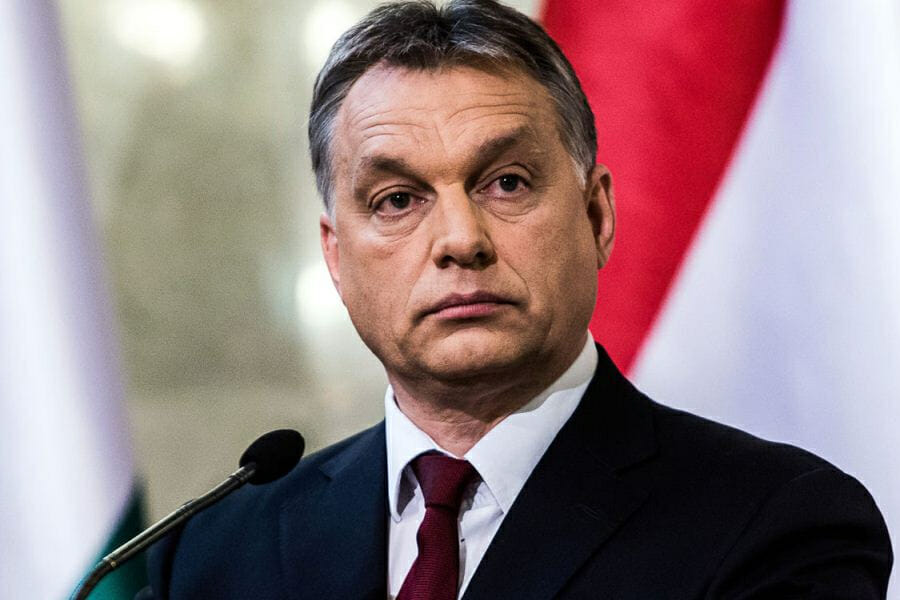
Goulash Democracy? Viktor Orban’s Hungary and Western Misconceptions
For many, the first word that comes to mind when thinking about Hungary is goulash. Like stew, made from a collection of unlikely ingredients, “goulash” seems an apt metaphor for Hungarian politics today, which has a confusingly mixed image of setbacks and achievements. Depending on who one talks to, Hungary’s current government is either undermining democracy or a shining example for its region. Parliamentary elections are due to take place in a few weeks’ time and, even more confusingly, the country’s firebrand Prime Minister, Viktor Orbán, is leading in national polls, despite the fact that his international image is regularly pummeled with accusations of authoritarianism.
According to the established narrative in the West, he has in mind one goal: to obtain and hold on to power. In support of the narrative, many point to criticism coming from the European Union. It is true that the Union tends to its flock with a heavy hand, punishing any transgressions coming from its member states. In the past four years, Hungary has seen a plethora of accusations delivered from Brussels over its democratic credentials, especially on the topics of electoral reform and economic programs.
Although there is some logic in these accusations, they only tell half the story. For instance, the same European Commission has praised Hungary’s “ambitious policies to fight corruption.”
As media stories have often painted a dismal image of Hungary’s political life, many positive developments have been largely ignored. Therefore, a more rounded appraisal would shed light on what the true motives and tendencies of Budapest are.
Questioning mainstream assumptions
In general, when the ruling right-leaning party scores over 50% in polls while at the same time facing a united opposition, one should begin to doubt the standard narrative offered by the media. If Orbán is truly the autocrat painted by the media, how can his FIDESZ party have the widespread support of its people? Moreover, the country has a long history of challenging autocratic rule.
Even before the fall of the Iron Curtain, Hungary was described as being the “happiest barrack in the socialist camp” due in great part to its unique variety of communism dubbed – not much surprise here – goulash communism. Starting from the ‘60s, the regime in Budapest opened up the country to the West by liberalizing the economy and permitting a degree of freedom of speech that was unprecedented anywhere in the Soviet Bloc.
According to Freedom House, a human rights watchdog, Hungary is a consolidated democracy, with healthy democratic credentials, unlike neighboring Romania, Croatia and Bulgaria, which have yet to make the transition to this elite class of representative governments. The American watchdog has pointed out though that Budapest registered setbacks in recent years over its “reckless economic policies, redrawing the electoral map and exerting political control over state institutions.” Is this truly the case?
A booming economy
The ruling FIDESZ coalition has raised eyebrows in Brussels by rejecting austerity and focusing instead on increasing employment and the purchasing power of its citizens. The government imposed tariff cuts on utility companies, slashing electricity prices for consumers by 20%. Furthermore, in 2011, some €13 billion worth of assets from private pension funds were temporarily nationalized to prop up public finances and prevent cuts in public wages and pensions. These moves were coupled with successive reductions in the central bank’s interest rate in an effort to revive the economy.
As a result of these bold and aggressive policies, Hungary’s economy grew by 2.7% year-on-year in the fourth quarter of 2013, unemployment has dropped to levels not seen since early 2009, wages have risen and inflation has reached a historic low. The approach produced a better than expected outcome, standing now as an interesting alternative to the dominant train of thought seen in the policies employed by Europe’s core countries.
Electoral reform
Hungary received considerable amounts of flak for its electoral reform as well. Several NGOs have argued that the new law is antidemocratic in nature and was meant only to entrench the ruling FIDESZ party in power. The fact that it was rushed through Parliament provided a strong cause for detractors to claim that Hungary is losing its democratic status. Beyond the legislative process used, what are the main elements of this reform?
The Parliament was streamlined from 386 members to just 199. Political participation is now encouraged, as citizens need only 500 signatures to be eligible to run for Parliament in their local constituency. Campaign finance is strictly monitored, companies and NGOs being forbidden from offering political contributions. The state supplies all running parties with equal amounts of public money and ensures that all parties get equal screen time on television. These factors seem to show a taste for openness and equality rather than a means to consolidate FIDESZ in power, opening up the electoral scene for new parties and figures.
Foreign policy ambitions
The recent nuclear deal signed between the government and Russia to prop up its sole nuclear power plant at Paks provides another example. Because of the deal, Hungary was accused of relinquishing its European ideals. Mark Varga, of the National Interest, has another opinion that shifts the meaning of Hungary’s ties with Russia: “the internal crisis of the European Union has pushed Hungary into a delicate negotiating act with the Kremlin in order to obtain concrete financial and security guarantees that the West seems no longer able to offer.”
As the Ukrainian crisis clearly points out, Hungary has not become a staunch ally of Moscow, its Foreign Minister declaring that Budapest condemns the Russian incursion in Crimea. In essence, these political moves should be seen not as true love stories but as marriages of convenience, dictated by hard geopolitical realities.
In sum, Orban is a polarizing figure in Europe, but it would be misleading to argue that he is simply a power hungry autocrat who only seeks to enhance his own stature. A parallel question is whether the Western media’s extensive criticism of the FIDESZ party is due less to the merit of Orbán’s actions and more to his refusal to follow the dictates of Brussels’ elite?

